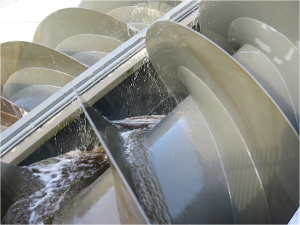-
- Buy a UK rod licence: EA Link
- 0800 807060 EA Hotline, Pollution, Poaching
- Thames Region River Levels
- Thames River Conditions
- Thames Temps and Clarity
- Thames Fishing Byelaws
- Thames Annual Tidefest
- Thames Record List
- Thames Eel Monitoring
- EA Annual Fisheries Report
- EA Flood Warnings
- Thames Sewage Discharge Notifications
- Thames Sewage Events
- Thames Tideway Tunnel
- River Thames Scheme: Reducing flood risk from Datchet to Teddington
- Martin Salter: Fighting for Fishing Blog
- Duncan Charmans World of Angling Blog
- Angling Trust
- Water and sewerage companies in England: environmental performance report 2013 – 2016
- EA Pollution incidents: 2014 evidence summary
- EA Pollution incidents: 2015 evidence summary
- River Crane and DNR Fisheries Impact assessment
- Links
Recent Tweets
Error retrieving tweetsNews Archive
Muted Celebrations over the Updated Hydropower Good Practice Guide
The organisations have attended about twenty meetings of the Hydropower Working Group over the past three years where their representatives have repeatedly pressed the EA to introduce stricter guidelines in the face of robust opposition from the British Hydropower Association (BHA), which wanted to take as much water out of rivers as possible. A decision by the Board in July was postponed following the threat of a legal challenge from the BHA.
Celebrations were to some extent muted however because of a number of outstanding concerns which the organisations raised with Lord (Chris) Smith, Chairman of the Environment Agency, in a letter which was copied to the rest of the Board in advance of the meeting.
The Angling Trust and Salmon & Trout Association raised concerns about:
The standard of evidence that developers will be required to provide to justify taking more water than the amount set out in the guidelines;
The ability of the Agency to regulate this industry properly in light of imminent budget cuts;
The continuing lack of understanding in the Agency about the cumulative impact of multiple schemes;
Relaxation of guidelines on high head schemes on upper tributary rivers which can be very important for fish spawning and gravel supply to the main river;
Relaxation of guidelines for on weir schemes – a decision that has been taken even before a study into the impact of such schemes on weir pools has concluded;
A lack of any firm conclusions from the Agency’s hydropower monitoring programme to inform the regulatory process.
Mark Lloyd, Chief Executive of the Angling Trust and Fish Legal said: “This is a major victory for fish and fishing and reflects the dogged persistence of our representatives who have given up hundreds of hours of their time to stand up for the water environment. We are very pleased to see that the importance of consultation with angling clubs and riparian owners has been emphasised in the document; our members are clearly the most important group for all developers to contact before they draft their plans. I would like to thank Roger Furniss and Alan Butterworth for all the time they gave up as volunteers to get this result, and to Janina Gray from the S&TA for her valuable input.”
A copy of the letter to Lord Smith is available Here
This entry was posted in News and tagged Angling Trust, Environment Agency, Fish KIll, Hydropower, Pollution. Bookmark the permalink.


